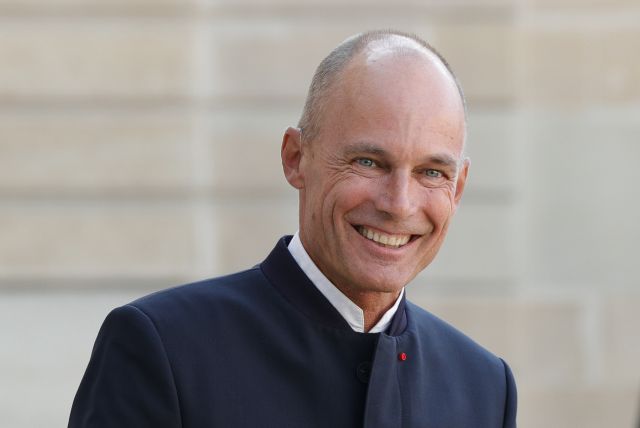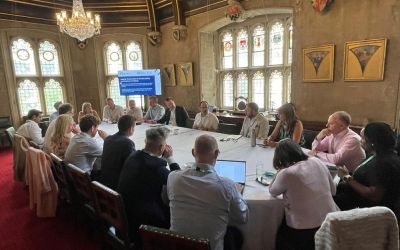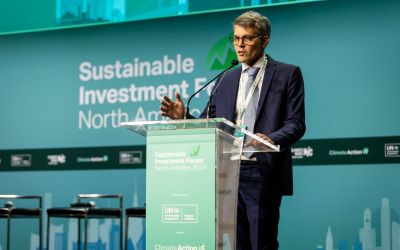Bertrand Piccard on what needs to be achieved in the next 12 months to meet 2030 targets
To mark the anniversary of COP21 and the Paris Agreement, Climate Action caught up with Bertrand Piccard, Initiator and Chairman at Solar Impulse Foundation, to discuss what needs to be done in the next 12 months to ensure we meet 2030 targets.

Ahead of the 5th Anniversary of the Pars Agreement, Climate Action caught up with Bertrand Piccard, Initiator and Chairman at Solar Impulse Foundation, to discuss what needs to be done in the next 12 months to ensure we meet 2030 targets.
In your view, what is the single best thing that has been achieved since COP21 in Paris in 2015?
I believe the frustration caused by the lack of results on international negotiations has had a positive result in pushing corporations, regions, cities and countries to take their own responsibility because they have seen that we have no time to wait for international consensus.
What achievement or project have you been most proud of being part of since COP21?
At COP21 I explained that the solutions to fix climate change started to be profitable, and I gave a commitment to prove it. Today, I continue that commitment through the challenge of identifying, selecting and labeling 1000 Solutions to protect the environment in a financially profitable way. Through the Solar Impulse Foundation, we have already identified 830 of these solutions, which is a lot because it really shows that protection of the environment is going to create more jobs and make more profit than the destruction of the environment. And even for climate change deniers, it makes sense to use renewable energies and clean technologies, to look for efficiency, to manage waste, and go into a circular economy because it pays for itself; it brings more money than continuing with old systems.
What topic would you like to see focused on at COP26 and why?
There are two main topics coming from COP21. The first is the Green Climate Fund (GCF) to help the developing countries, which has not been very successful. The second is the Nationally Determined Contributions, the NDCs, which are not really very ambitious in a lot of countries. What I would like to see at COP26 will be a lot of very ambitious NDCs that are based on all the financially profitable solutions that exist today to fight against climate change. It is useless to continue to say, "We should do something," and not do it. Today, because it is financially profitable to realize energy efficiency, renewable energies and a circular economy, we should focus on emphasizing all the NDCs that are financially profitable for all the countries. We should stop saying that the NDCs are a sacrifice for countries. NDCs today are the only way today to increase the GDP.
One change we've seen over the last five years is that today industry is pushing to have more ambitious environmental regulations and the countries' policies are resisting. This is the opposite of how it was five years ago. Regulation will come, but industries don't know when, and they don't know how, which is the worst scenario for the management of a company. The unpredictability, the uncertainty and the unreliability of political decisions are terrible. This is why today you have a lot of very big corporations like Nestle, LVMH, BNP Paribas, Engie, Air France, Breitling, all calling on governments for more ambitious regulations; they ask for CO2 pricing because they need to integrate these certainties into their budgets and into their strategies. But governments are afraid to make these decisions because they don't know how the electors will react, and this is why we really have to show that it is good for the economy and the GDP if they regulate in favor of the environment.
Also, the COVID-19 pandemic has given the world an opportunity to think differently. Before the COVID crisis we lived in a world that was inefficient. Massive amounts of energy were wasted, food was wasted, half of the natural resources were wasted, and 95 percent of the waste itself was never given a chance to become a new resource for a new industrial market. Today, the goal should be to bring efficiency to the world. Stop wasting energy and resources.
As an example - the combustion engine is 27 percent efficient. Three quarters of the gas you put into your tank is lost because of the system's inefficiency. If you drive an electric car the engine is 97 percent efficient. You lose almost no energy. It means that for the same amount of energy you could propel three times more electric cars than gasoline cars. It's crazy. When we talk about the economic recovery with the trillions of dollars that are flooding the market, this money should be used to help the industry modernize production, and help countries to modernize their infrastructures. We certainly cannot to go back to what we had before, which was inefficient, polluting and dangerous.
What are the three things you think we should prioritize in the next 12 months to ensure we have a chance of meeting 2030 emission reduction targets?
There are four things:
- We should start modernizing infrastructures to be more energy efficient everywhere. We should start in industry, waste, recycling, upcycling, second life and so on.
- We should put much more ambitious environmental standards in place to pull all new innovations to the market, because today industry is still allowed to pollute as much as it wants.
- We need a price on carbon because carbon is an externality – a consequence that is not included.
- The import of goods must correspond to environmental and human rights standards of the country of importation. The World Trade organization, WTO, allows countries to block goods at the border that do not comply with the environmental and human rights standards of the country of import.
What is the one most important thing in your eyes, that needs to be achieved by 2030?
We have to start right away with the 12-month plan mentioned above, and all this needs to be fully implemented by 2030.




_400_250_s_c1.png)

